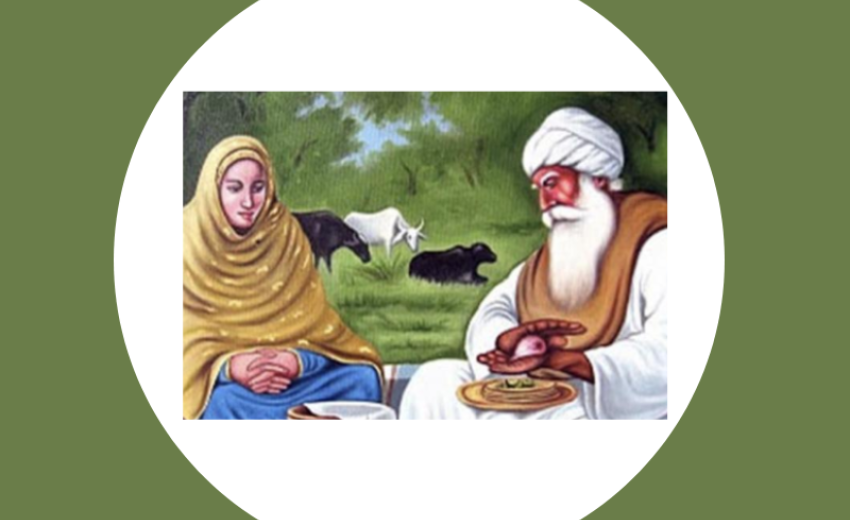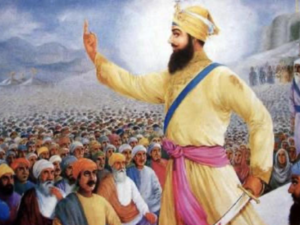Introduction
Baba Budha Ji, one of the most revered figures in Sikh history, occupies a unique position as a spiritual guide and servant who spanned the eras of six Sikh Gurus. Born as Bura in 1505 AD in Kathu Nangal, Amritsar, he became affectionately known as *Baba Budha* following a divine encounter with Guru Nanak Dev Ji. His long life, which extended over 125 years, was a testimony to his unwavering dedication to the Sikh faith. Serving as a bridge between successive Gurus, his role in shaping Sikh tradition, leadership, and spirituality was unparalleled. This article seeks to explore Baba Budha Ji’s monumental contributions, highlighting his key roles, spiritual insights, and lasting legacy within the Sikh community.
Baba Budha Ji's journey into the Sikh fold began in 1518 AD when he encountered Guru Nanak Dev Ji, under whose guidance he adopted a path of deep devotion and service. His early association with Guru Nanak Dev Ji allowed him to absorb the essence of Sikh teachings. This spiritual foundation enabled Baba Budha Ji to become a guiding figure for the following Gurus. His anointment of Guru Angad Dev Ji as the second Guru of the Sikh faith marked the beginning of his vital role as a spiritual intermediary between the Gurus and the growing Sikh community.
Baba Budha Ji was closely involved in the administration and growth of Sikh institutions. Under the leadership of Guru Amar Das Ji, he was instrumental in supervising the renovation of the *Bauli* at Goindwal Sahib in 1552 AD, an essential step in the infrastructural development of the Sikh community. Moreover, he played a pivotal role in overseeing the construction of the holy lake in Amritsar during the era of Guru Ram Das Ji, further consolidating the religious and social foundation of the Sikh faith.
A significant moment in Baba Budha Ji’s spiritual career was during the compilation of the *Adi Granth* in 1604 AD by Guru Arjan Dev Ji. Baba Budha Ji was entrusted with the honor of being the first *Granthi* of Sri Harmandir Sahib, marking his esteemed place in Sikh history. His spiritual influence extended beyond the religious realm, as he also guided the young Guru Hargobind Sahib, shaping him into a warrior saint prepared to lead the Sikhs in an era of political turmoil.
Contributions to Sikh Institutions and Leadership
Baba Budha Ji's influence was not only spiritual but also institutional. He was responsible for the establishment and supervision of 22 *Manjis*, a system created by Guru Amar Das Ji to spread Sikhism far and wide. His efforts in managing these religious seats ensured that the teachings of the Gurus were disseminated effectively across diverse regions.
Moreover, Baba Budha Ji played a crucial role in important political negotiations. During a critical juncture in Sikh history, he, along with Bhai Gurdas Ji, provided astute leadership when Guru Hargobind Sahib was imprisoned in Gwalior Fort by Emperor Jahangir. His interactions with Jahangir in January 1620 were instrumental in ensuring the release of the Guru and protecting Sikh interests.
Baba Budha Ji’s administrative acumen also shone through when Guru Hargobind Sahib entrusted him and Bhai Gurdas Ji with overseeing the construction of the *Akal Takht* (Akal Bunga) in Amritsar. This site would later become the epicenter of Sikh political and religious authority, further illustrating the depth of Baba Budha Ji’s contributions to the institutional framework of Sikhism.
Conclusion
Baba Budha Ji’s legacy is one of immense spiritual insight, dedication, and leadership. His long life, filled with service to the Sikh Gurus and the community, positioned him as a towering figure in Sikh history. From his role in overseeing the sacred sites of Sikhism, such as the *Bauli* of Goindwal Sahib and the holy lake of Amritsar, to his guidance in the creation of the *Adi Granth* and the construction of the *Akal Takht*. His contributions were foundational to the development of Sikhism as a religious and socio-political entity.
Baba Budha Ji’s role as a spiritual mentor to five Sikh Gurus, and his involvement in the anointment of several of them, emphasizes his indispensable place in Sikh tradition. His influence on Guru Hargobind Sahib, in particular, helped lay the groundwork for the martial aspect of Sikh leadership, a development that would have far-reaching implications for the Sikh community. His passing in 1631 AD, at the age of 125, marked the end of a life steeped in devotion, service, and unparalleled leadership.
In conclusion, Baba Budha Ji remains a beacon of enlightenment and spiritual wisdom in Sikh history. His deep connection with the Sikh Gurus, coupled with his profound contributions to the religious, social, and political fabric of the Sikh community, ensures his enduring legacy as one of the most important figures in the Sikh faith. His memory is honored not only through historical narratives but also through the sacred sites that bear witness to his life's work, including the *Gurdwara Tap Asthan Baba Budha Ji* and Sri Harmandir Sahib, where his presence continues to inspire Sikhs around the world.






